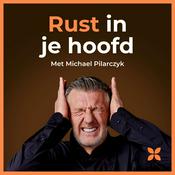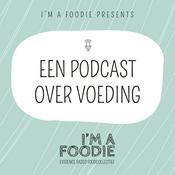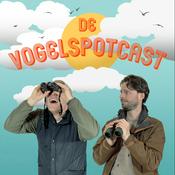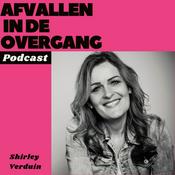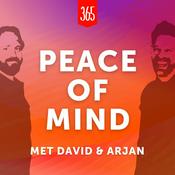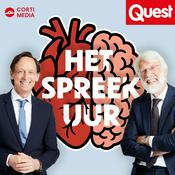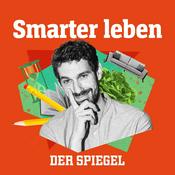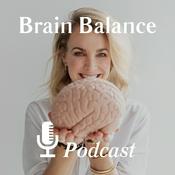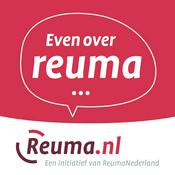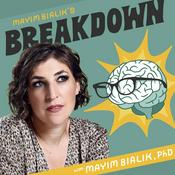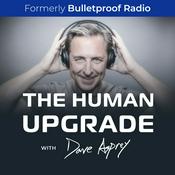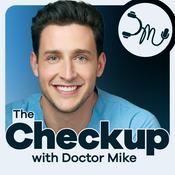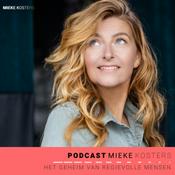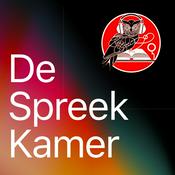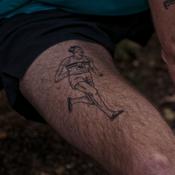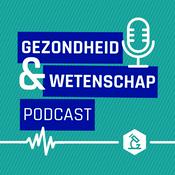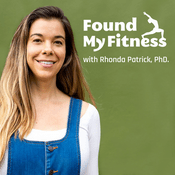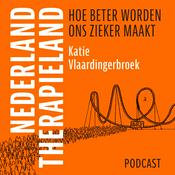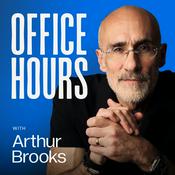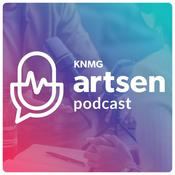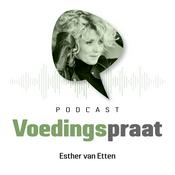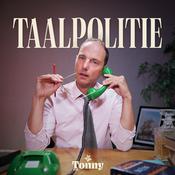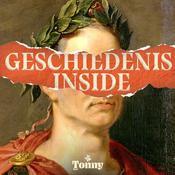13 afleveringen
- Van citroenwater tot injecties voor gewichtsverlies: wie wil afvallen ziet online door de bomen het bos niet meer. Ozempic wordt gepresenteerd als hét nieuwe wondermiddel, maar is dat terecht? Of zitten er meer haken en ogen aan dan TikTok je doet geloven?
In deze aflevering duiken Tom en Alexander diep in de hype rondom Ozempic en andere afslankmedicatie. Wat doet het middel precies in je lichaam? Voor wie is het bedoeld, en wat gebeurt er als je ermee stopt? Met wetenschap als leidraad scheiden ze feiten van fabels.
In deze aflevering:
💉 Wat is Ozempic precies en hoe werkt het in je lichaam?
⏳ Verkort Ozempic je levensduur, of juist niet?
😬 Bestaat “Ozempic face” echt, of is dat gewoon normaal bij afvallen?
🔁 Kom je na Ozempic altijd weer aan?
🍋 Helpt citroenwater, zout en wandelen écht om snel af te vallen?
Tom stelt de vragen, Alexander ontrafelt de claims. Zodat jij aan het eind weet: wat is een bewezen hulpmiddel, wat is overschat, en wanneer een simpele leefstijlverandering minstens zo effectief is als een spuitje.
Lang zal je leven, maar wel met verstand.
🎧 Geproduceerd door Tonny Media
👉 Volg ons op Instagram, TikTok en YouTube
🥼Alle onderzoeken die in deze aflevering worden besproken vind je hier:
Aamir AB, Latif R, Alqoofi JF, Almarzoq FA, Fallatah JO, Hassan GA, Saab FAAAA. Comparative Efficacy of Tirzepatide vs. Semaglutide in Reducing Body Weight in Humans: A Systematic Review and Meta-Analysis of Clinical Trials and Real-World Data. J Clin Med Res. 2025 May;17(5):285-296. doi: 10.14740/jocmr6231. Epub 2025 May 13. PMID: 40503067; PMCID: PMC12151102.
McGowan B, Ciudin A, Baker JL, Busetto L, Dicker D, Frühbeck G, Goossens GH, Monami M, Sbraccia P, Martinez-Tellez B, Woodward E, Yumuk V. A systematic review and meta-analysis of the efficacy and safety of pharmacological treatments for obesity in adults. Nat Med. 2025 Oct;31(10):3317-3329. doi: 10.1038/s41591-025-03978-z. Epub 2025 Oct 2. PMID: 41039116; PMCID: PMC12532627.
Bacha Z, Javed J, Sheraz M, Sikandar M, Zakir M, Ali MA, Khan M, Iqbal A, Rehman A, Alam U, Ahmed R. Efficacy and Safety of Semaglutide on Cardiovascular Outcomes in Patients with Type 2 Diabetes: A Systematic Review and Meta-Analysis of Randomized Controlled Trials. Cardiol Rev. 2025 Sep 19. doi: 10.1097/CRD.0000000000001057. Epub ahead of print. PMID: 40968407.
Sillassen CDB, Petersen JJ, Faltermeier P, Yucel D, Siddiqui F, Andersen RK, Graever L, Bjerg JL, Kamp CB, Grand J, Dominguez H, Frølich A, Gæde P, Gluud C, Mathiesen O, Jakobsen JC. The adverse effects associated with semaglutide use in patients at increased risk of cardiovascular events: a systematic review with meta-analysis and Trial Sequential Analysis. BMC Med. 2025 Nov 24;23(1):654. doi: 10.1186/s12916-025-04486-0. PMID: 41286875; PMCID: PMC12642075.
Yao Y, Liu N, Chen S, Sun M, Guo Y. Semaglutide reduces cardiovascular events in type 2 diabetes: a systematic review and meta-analysis highlighting enhanced benefits in chronic kidney disease. Eur J Med Res. 2025 Nov 4;30(1):1059. doi: 10.1186/s40001-025-03241-8. PMID: 41188987; PMCID: PMC12584374.
Wu R, Xing B, Zhou Z, Yu L, Wang H. Effect of semaglutide on arrhythmic, major cardiovascular, and renal outcomes in patients with overweight or obesity: a systematic review and meta-analysis. Eur J Med Res. 2025 Sep 2;30(1):835. doi: 10.1186/s40001-025-03124-y. PMID: 40890879; PMCID: PMC12403603.
Lincoff AM, Brown-Frandsen K, Colhoun HM, Deanfield J, Emerson SS, Esbjerg S, Hardt-Lindberg S, Hovingh GK, Kahn SE, Kushner RF, Lingvay I, Oral TK, Michelsen MM, Plutzky J, Tornøe CW, Ryan DH; SELECT Trial Investigators. Semaglutide and Cardiovascular Outcomes in Obesity without Diabetes. N Engl J Med. 2023 Dec 14;389(24):2221-2232. doi: 10.1056/NEJMoa2307563. Epub 2023 Nov 11. PMID: 37952131.
Galli M, Benenati S, Laudani C, Simeone B, Sarto G, Ortega-Paz L, Rocco E, Bernardi M, Spadafora L, D'Amario D, Greco E, Frati G, Federici M, Mehran R, Crea F, Angiolillo DJ, Sciarretta S. Cardiovascular Effects and Tolerability of GLP-1 Receptor Agonists: A Systematic Review and Meta-Analysis of 99,599 Patients. J Am Coll Cardiol. 2025 Nov 18;86(20):1805-1819. doi: 10.1016/j.jacc.2025.08.027. Epub 2025 Aug 27. PMID: 40892610.
Shuja SH, Shuja MH, Shaukat A, Hannat R, Ahmed I, Adam S, Abdelkhalek A, Changez MIK, Ullah I, Ahmed R, Cortese B. GLP-1 Receptor Agonists and Cardiovascular Outcomes in Adults With Diabetes and Peripheral Artery Disease: An Updated Systematic Review and Meta-Analysis. Am J Cardiol. 2026 Jan 1;258:268-275. doi: 10.1016/j.amjcard.2025.09.039. Epub 2025 Sep 27. PMID: 41022246.
Anyiam O, Ardavani A, Rashid RSA, Panesar A, Idris I. How do glucagon-like Peptide-1 receptor agonists affect measures of muscle mass in individuals with, and without, type 2 diabetes: A systematic review and meta-analysis. Obes Rev. 2025 Jul;26(7):e13916. doi: 10.1111/obr.13916. Epub 2025 Apr 3. PMID: 40181228; PMCID: PMC12137041.
Prado CM, Phillips SM, Gonzalez MC, Heymsfield SB. Muscle matters: the effects of medically induced weight loss on skeletal muscle. Lancet Diabetes Endocrinol. 2024 Nov;12(11):785-787. doi: 10.1016/S2213-8587(24)00272-9. Epub 2024 Sep 9. PMID: 39265590.
Karakasis P, Patoulias D, Fragakis N, Mantzoros CS. Effect of glucagon-like peptide-1 receptor agonists and co-agonists on body composition: Systematic review and network meta-analysis. Metabolism. 2025 Mar;164:156113. doi: 10.1016/j.metabol.2024.156113. Epub 2024 Dec 22. PMID: 39719170.
Kolli RT, Aoutla S, Jyothi N, Mohamed Kalifa MRH, Raju A, Cheenikkal Muralidharan K. Rebound or Retention: A Meta-Analysis of Weight Regain After the Discontinuation of Glucagon-Like Peptide-1 (GLP-1) Receptor Agonists and Other Anti-obesity Drugs. Cureus. 2025 Oct 19;17(10):e94926. doi: 10.7759/cureus.94926. PMID: 41116804; PMCID: PMC12535773.
Berg S, Stickle H, Rose SJ, Nemec EC. Discontinuing glucagon-like peptide-1 receptor agonists and body habitus: A systematic review and meta-analysis. Obes Rev. 2025 Aug;26(8):e13929. doi: 10.1111/obr.13929. Epub 2025 Apr 4. PMID: 40186344.
Quarenghi M, Capelli S, Galligani G, Giana A, Preatoni G, Turri Quarenghi R. Weight Regain After Liraglutide, Semaglutide or Tirzepatide Interruption: A Narrative Review of Randomized Studies. J Clin Med. 2025 May 28;14(11):3791. doi: 10.3390/jcm14113791. PMID: 40507553; PMCID: PMC12155999.
Kılıç S. Facial aging after GLP-1 receptor agonist-induced weight loss: the emerging Ozempic face phenomenon. J Diabetes Metab Disord. 2025 Nov 6;24(2):261. doi: 10.1007/s40200-025-01778-3. PMID: 41210112; PMCID: PMC12592601.
Chu J, Zhang H, Wu Y, Huang Y, Zhu T, Zhou Z, Wang H. Efficacy of lifestyle modification combined with GLP-1 receptor agonists on body weight and cardiometabolic biomarkers in individuals with overweight or obesity: a systematic review and meta-analysis. EClinicalMedicine. 2025 Aug 30;88:103464. doi: 10.1016/j.eclinm.2025.103464. PMID: 40926900; PMCID: PMC12414836.
Wong HJ, Sim B, Teo YH, Teo YN, Chan MY, Yeo LLL, Eng PC, Tan BYQ, Sattar N, Dalakoti M, Sia CH. Efficacy of GLP-1 Receptor Agonists on Weight Loss, BMI, and Waist Circumference for Patients With Obesity or Overweight: A Systematic Review, Meta-analysis, and Meta-regression of 47 Randomized Controlled Trials. Diabetes Care. 2025 Feb 1;48(2):292-300. doi: 10.2337/dc24-1678. PMID: 39841962.
Codella R, Senesi P, Luzi L. GLP-1 agonists and exercise: the future of lifestyle prioritization. Front Clin Diabetes Healthc. 2025 Nov 24;6:1720794. doi: 10.3389/fcdhc.2025.1720794. PMID: 41367404; PMCID: PMC12683586.
De Amicis R, Foppiani A, Leone A, Sileo F, Menichetti F, Mambrini SP, Pellizzari M, Tucci M, Martini D, Del Bo C, Riso P, Bertoli S, Battezzati A. How sustainable are hypocaloric and balanced diets for weight loss? Nutr Metab (Lond). 2025 Jun 10;22(1):58. doi: 10.1186/s12986-025-00937-w. PMID: 40495206; PMCID: PMC12153144.
Cigrovski Berkovic M, Ruzic L, Cigrovski V, Strollo F. Saving muscle while losing weight: A vital strategy for sustainable results while on glucagon-like peptide-1 related drugs. World J Diabetes. 2025 Sep 15;16(9):109123. doi: 10.4239/wjd.v16.i9.109123. PMID: 40980310; PMCID: PMC12444289.
Ruseva A, Michalak W, Fabricatore A, Hartaigh BÓ, Zhao Z, Wang J, Umashanker D. Sustained weight reduction with once-weekly semaglutide: results from a real-world retrospective cohort study in the United States (SCOPE 24 months). Curr Med Res Opin. 2025 Dec 6:1-12. doi: 10.1080/03007995.2025.2591464. Epub ahead of print. PMID: 41351543.
Reiss AB, Gulkarov S, Lau R, Klek SP, Srivastava A, Renna HA, De Leon J. Weight Reduction with GLP-1 Agonists and Paths for Discontinuation While Maintaining Weight Loss. Biomolecules. 2025 Mar 13;15(3):408. doi: 10.3390/biom15030408. PMID: 40149944; PMCID: PMC11940170.
See omnystudio.com/listener for privacy information. - Van ultrabewerkt voedsel tot bespoten aardbeien en kraanwater dat je zou moeten filteren: op socials lijkt alles wat je eet of drinkt een tikkende tijdbom. Maar wat moet je hier nu écht van geloven? In deze aflevering duiken. Tom en Alexander ontrafelen de hardste claims over ons meest normale dagelijkse eten en drinken. Met wetenschap als filter, niet met paniek.
In deze aflevering:
🥫 Ultrabewerkt voedsel veroorzaakt dementie
🍓 Er zit veel pfas op fruit en groente en dit is schadelijk voor je gezondheid
🧴 Microplastics veroorzaken gezondheidsproblemen dus drink uit glas.
🚰 In Nederland moet je je kraanwater filteren om gezond te blijven.
Tom stelt de vragen, Alexander fileert de feiten. Zodat jij voortaan weet: wat is een terechte zorg voor je gezondheid, wat is overdreven angst en wanneer je TikTok beter even kunt wegklikken.🎧 Geproduceerd door Tonny Media
👉 Volg ons op Instagram, TikTok en YouTube
🥼Alle onderzoeken die in deze aflevering worden besproken vind je hier:
Onderzoek:
Pagliai G, Dinu M, Madarena MP, Bonaccio M, Iacoviello L, Sofi F. Consumption of ultra-processed foods and health status: a systematic review and meta-analysis. Br J Nutr. 2021 Feb 14;125(3):308-318. doi: 10.1017/S0007114520002688. Epub 2020 Aug 14. PMID: 32792031; PMCID: PMC7844609.
Winiarska E, Jutel M, Zemelka-Wiacek M. The potential impact of nano- and microplastics on human health: Understanding human health risks. Environ Res. 2024 Jun 15;251(Pt 2):118535. doi: 10.1016/j.envres.2024.118535. Epub 2024 Mar 7. PMID: 38460665.
Lane MM, Gamage E, Du S, Ashtree DN, McGuinness AJ, Gauci S, Baker P, Lawrence M, Rebholz CM, Srour B, Touvier M, Jacka FN, O'Neil A, Segasby T, Marx W. Ultra-processed food exposure and adverse health outcomes: umbrella review of epidemiological meta-analyses. BMJ. 2024 Feb 28;384:e077310. doi: 10.1136/bmj-2023-077310. PMID: 38418082; PMCID: PMC10899807.
Yeoh CSL, Alrazihi LA, Wong ST, Wong SF. Per- and poly-fluoroalkyl substances (PFAS) and human health: a review of exposure routes and potential toxicities across the lifespan. Environ Toxicol Chem. 2025 Oct 1;44(10):2754-2786. doi: 10.1093/etojnl/vgaf172. PMID: 40627414.
Mendoza K, Smith-Warner SA, Rossato SL, Khandpur N, Manson JE, Qi L, Rimm EB, Mukamal KJ, Willett WC, Wang M, Hu FB, Mattei J, Sun Q. Ultra-processed foods and cardiovascular disease: analysis of three large US prospective cohorts and a systematic review and meta-analysis of prospective cohort studies. Lancet Reg Health Am. 2024 Sep 2;37:100859. doi: 10.1016/j.lana.2024.100859. PMID: 39286398; PMCID: PMC11403639.
Vitale M, Costabile G, Testa R, D'Abbronzo G, Nettore IC, Macchia PE, Giacco R. Ultra-Processed Foods and Human Health: A Systematic Review and Meta-Analysis of Prospective Cohort Studies. Adv Nutr. 2024 Jan;15(1):100121. doi: 10.1016/j.advnut.2023.09.009. Epub 2023 Dec 18. PMID: 38245358; PMCID: PMC10831891.
Liang S, Zhou Y, Zhang Q, Yu S, Wu S. Ultra-processed foods and risk of all-cause mortality: an updated systematic review and dose-response meta-analysis of prospective cohort studies. Syst Rev. 2025 Mar 3;14(1):53. doi: 10.1186/s13643-025-02800-8. PMID: 40033461; PMCID: PMC11874696.
Henney AE, Gillespie CS, Alam U, Hydes TJ, Mackay CE, Cuthbertson DJ. High intake of ultra-processed food is associated with dementia in adults: a systematic review and meta-analysis of observational studies. J Neurol. 2024 Jan;271(1):198-210. doi: 10.1007/s00415-023-12033-1. Epub 2023 Oct 13. PMID: 37831127; PMCID: PMC10770002.
Pourmotabbed A, Talebi S, Mehrabani S, Babaei A, Khosroshahi RA, Bagheri R, Wong A, Ghoreishy SM, Amirian P, Zarpoosh M, Hojjati Kermani MA, Moradi S. The association of ultra-processed food intake with neurodegenerative disorders: a systematic review and dose-response meta-analysis of large-scale cohorts. Nutr Neurosci. 2025 Jan;28(1):73-86. doi: 10.1080/1028415X.2024.2351320. Epub 2024 May 16. PMID: 38753992.
Gomes Gonçalves N, Vidal Ferreira N, Khandpur N, et al. Association Between Consumption of Ultraprocessed Foods and Cognitive Decline. JAMA Neurol. 2023;80(2):142–150. doi:10.1001/jamaneurol.2022.4397
Torres FG, De-la-Torre GE. Per- and polyfluoroalkyl substances (PFASs) in consumable species and food products. J Food Sci Technol. 2023 Sep;60(9):2319-2336. doi: 10.1007/s13197-022-05545-7. Epub 2022 Jul 28. PMID: 37424586; PMCID: PMC10326201.
Iannone A, Carriera F, Passarella S, Fratianni A, Avino P. There's Something in What We Eat: An Overview on the Extraction Techniques and Chromatographic Analysis for PFAS Identification in Agri-Food Products. Foods. 2024 Apr 1;13(7):1085. doi: 10.3390/foods13071085. PMID: 38611389; PMCID: PMC11011820.
Blaine AC, Rich CD, Sedlacko EM, Hyland KC, Stushnoff C, Dickenson ER, Higgins CP. Perfluoroalkyl acid uptake in lettuce (Lactuca sativa) and strawberry (Fragaria ananassa) irrigated with reclaimed water. Environ Sci Technol. 2014 Dec 16;48(24):14361-8. doi: 10.1021/es504150h. Epub 2014 Nov 25. PMID: 25386873.
Kumar N, Lamba M, Pachar AK, Yadav S, Acharya A. Microplastics - A Growing Concern as Carcinogens in Cancer Etiology: Emphasis on Biochemical and Molecular Mechanisms. Cell Biochem Biophys. 2024 Dec;82(4):3109-3121. doi: 10.1007/s12013-024-01436-0. Epub 2024 Jul 20. PMID: 39031249.
Nivedita J, Megha P, Daisy PS, Sivachandran R, Ramprasath A, Rajkumar M, Anitha TS. Microplastics and Cancer: A Comprehensive Review of Their Impact on Tumor Progression and Mechanisms of Carcinogenesis. J Environ Pathol Toxicol Oncol. 2025;44(4):31-46. doi: 10.1615/JEnvironPatholToxicolOncol.2025054888. PMID: 41213061.
Liu X, Wang L, Liu X, Yu P, Diao Y, Chen T, Sheng Y, Zhang D, Peng D, Guo Y, Li S, Xu R. Microplastics, plastics, and their products exposures and cancer: a pooled analysis. Int J Surg. 2025 Aug 1;111(8):5593-5605. doi: 10.1097/JS9.0000000000002631. Epub 2025 Jun 20. PMID: 40540244.
Mishra SK, Sanyal T, Kundu P, Kumar R, Ghosh D, Chakrabarti G, Sikdar N, Bhattacharya S, Paul S, Das A. Microplastics as emerging carcinogens: from environmental pollutants to oncogenic drivers. Mol Cancer. 2025 Oct 8;24(1):248. doi: 10.1186/s12943-025-02409-4. PMID: 41063167; PMCID: PMC12505851.
Park S, Onufrak SJ, Cradock AL, Patel A, Hecht C, Blanck HM. Perceptions of Water Safety and Tap Water Taste and Their Associations With Beverage Intake Among U.S. Adults. Am J Health Promot. 2023 Jun;37(5):625-637. doi: 10.1177/08901171221150093. Epub 2023 Jan 6. PMID: 36609168; PMCID: PMC10239313.
Geerts R, Vandermoere F, Van Winckel T, Halet D, Joos P, Van Den Steen K, Van Meenen E, Blust R, Borregán-Ochando E, Vlaeminck SE. Bottle or tap? Toward an integrated approach to water type consumption. Water Res. 2020 Apr 15;173:115578. doi: 10.1016/j.watres.2020.115578. Epub 2020 Jan 31. PMID: 32058152.
https://wetten.overheid.nl/BWBR0030111/2018-07-01
Gambino I, Bagordo F, Grassi T, Panico A, De Donno A. Occurrence of Microplastics in Tap and Bottled Water: Current Knowledge. Int J Environ Res Public Health. 2022 Apr 26;19(9):5283. doi: 10.3390/ijerph19095283. PMID: 35564678; PMCID: PMC9103198.
Khu ST, Li F, Zhao W. Microplastics in drinking water distribution systems: Occurrence, environmental behavior, and human health concerns. Environ Pollut. 2025 Oct 1;382:126666. doi: 10.1016/j.envpol.2025.126666. Epub 2025 Jun 13. PMID: 40518066.
Haleem N, Kumar P, Zhang C, Jamal Y, Hua G, Yao B, Yang X. Microplastics and associated chemicals in drinking water: A review of their occurrence and human health implications. Sci Total Environ. 2024 Feb 20;912:169594. doi: 10.1016/j.scitotenv.2023.169594. Epub 2023 Dec 27. PMID: 38154642.
Hazzazi LW, Soto-Rojas AE, Martinez-Mier EA, Nassar HM, Eckert GJ, Lippert F. The effect of water filter pitchers on the mineral concentration of tap water. J Public Health Dent. 2025 Mar;85(1):21-28. doi: 10.1111/jphd.12649. Epub 2024 Nov 6. PMID: 39505386; PMCID: PMC11927951.
Shayo GM, Elimbinzi E, Shao GN. Water-based technologies for improving water quality at the point of use: A review. Wiley Interdiscip Rev Nanomed Nanobiotechnol. 2024 Jan-Feb;16(1):e1940. doi: 10.1002/wnan.1940. PMID: 38456325.
See omnystudio.com/listener for privacy information. - Onze darmen worden vaak het tweede brein genoemd, maar klopt dat eigenlijk? Deze week duiken Tom en Alexander diep in de wereld van het microbioom. Tom testte een week lang probiotica: voel je je dan echt lichter, energieker, minder… gasachtig? Alexander legt uit waarom rauwe zuivel zo’n hype is én hoe een poeptransplantatie iemands leven kan redden. 💩🥛
In deze aflevering:
💊 Neem probiotica en geen antibiotica
🧠 Je darmen zijn je tweede brein
⚖️ Je microbioom bepaalt hoe dik en hoe ziek je wordt
🚑 Poeptransplantaties redden levens
Tom stelt de vragen, Alexander fileert de feiten. Zodat jij voortaan weet: wat helpt je darmen écht, wat is dure onzin, en wanneer je beter niet blind een potje ‘probiotica power’ hoeft te kopen.
Onderzoeken uit deze aflevering:
McDonnell L, Gilkes A, Ashworth M, Rowland V, Harries TH, Armstrong D, White P. Association between antibiotics and gut microbiome dysbiosis in children: systematic review and meta-analysis. Gut Microbes. 2021 Jan-Dec;13(1):1-18. doi: 10.1080/19490976.2020.1870402. PMID: 33651651; PMCID: PMC7928022.
de Vos WM, Tilg H, Van Hul M, Cani PD. Gut microbiome and health: mechanistic insights. Gut. 2022 May;71(5):1020-1032. doi: 10.1136/gutjnl-2021-326789. Epub 2022 Feb 1. PMID: 35105664; PMCID: PMC8995832.
Gomaa EZ. Human gut microbiota/microbiome in health and diseases: a review. Antonie Van Leeuwenhoek. 2020 Dec;113(12):2019-2040. doi: 10.1007/s10482-020-01474-7. Epub 2020 Nov 2. PMID: 33136284.
Lee J-Y, Bays DJ, Savage HP, Bäumler AJ. The human gut microbiome in health and disease: time for a new chapter? Infect Immun. 2024 Nov 12;92(11):e0030224. doi: 10.1128/iai.00302-24. Epub 2024 Sep 30. PMID: 39347570; PMCID: PMC11556149.
Mayer EA, Nance K, Chen S. The Gut-Brain Axis. Annu Rev Med. 2022 Jan 27;73:439-453. doi: 10.1146/annurev-med-042320-014032. Epub 2021 Oct 20. PMID: 34669431.
Petrut SM, Bragaru AM, Munteanu AE, Moldovan AD, Moldovan CA, Rusu E. Gut over Mind: Exploring the Powerful Gut-Brain Axis. Nutrients. 2025 Feb 28;17(5):842. doi: 10.3390/nu17050842. PMID: 40077713; PMCID: PMC11901622.
Margolis KG, Cryan JF, Mayer EA. The Microbiota-Gut-Brain Axis: From Motility to Mood. Gastroenterology. 2021 Apr;160(5):1486-1501. doi: 10.1053/j.gastro.2020.10.066. Epub 2021 Jan 22. PMID: 33493503; PMCID: PMC8634751.
Gupta K, Tappiti M, Nazir AM, Koganti B, Memon MS, Aslam Zahid MB, Shantha Kumar V, Mostafa JA. Fecal Microbiota Transplant in Recurrent Clostridium Difficile Infections: A Systematic Review. Cureus. 2022 May 5;14(5):e24754. doi: 10.7759/cureus.24754. PMID: 35693372; PMCID: PMC9174020.
Porcari S, Baunwall SMD, Occhionero AS, Ingrosso MR, Ford AC, Hvas CL, Gasbarrini A, Cammarota G, Ianiro G. Fecal microbiota transplantation for recurrent C. difficile infection in patients with inflammatory bowel disease: A systematic review and meta-analysis. J Autoimmun. 2023 Dec;141:103036. doi: 10.1016/j.jaut.2023.103036. Epub 2023 Apr 23. PMID: 37098448.
Lerner A, Shoenfeld Y, Matthias T. Probiotics: If It Does Not Help It Does Not Do Any Harm. Really? Microorganisms. 2019 Apr 11;7(4):104. doi: 10.3390/microorganisms7040104. PMID: 30979072; PMCID: PMC6517882.
Nel Van Zyl K, Matukane SR, Hamman BL, Whitelaw AC, Newton-Foot M. Effect of antibiotics on the human microbiome: a systematic review. Int J Antimicrob Agents. 2022 Feb;59(2):106502. doi:
Lerner A, Shoenfeld Y, Matthias T. Probiotics: If It Does Not Help It Does Not Do Any Harm. Really? Microorganisms. 2019 Apr 11;7(4):104. doi: 10.3390/microorganisms7040104. PMID: 30979072; PMCID: PMC6517882.
Pomares Bascuñana RÁ, Veses V, Sheth CC. Effectiveness of fecal microbiota transplant for the treatment of Clostridioides difficile diarrhea: a systematic review and meta-analysis. Lett Appl Microbiol. 2021 Aug;73(2):149-158. doi: 10.1111/lam.13486. Epub 2021 May 8. PMID: 33864273.
Eliaz I. The Failure of Probiotics-and the Strategy of Microbiome Synergy. Integr Med (Encinitas). 2020 Jun;19(3):8-10. PMID: 33132772; PMCID: PMC7572142.
Chandrasekaran P, Weiskirchen S, Weiskirchen R. Effects of Probiotics on Gut Microbiota: An Overview. Int J Mol Sci. 2024 May 30;25(11):6022. doi: 10.3390/ijms25116022. PMID: 38892208; PMCID: PMC11172883.10.1016/j.ijantimicag.2021.106502. Epub 2021 Dec 18. PMID: 34929293.
Ramirez J, Guarner F, Bustos Fernandez L, Maruy A, Sdepanian VL, Cohen H. Antibiotics as Major Disruptors of Gut Microbiota. Front Cell Infect Microbiol. 2020 Nov 24;10:572912. doi: 10.3389/fcimb.2020.572912. PMID: 33330122; PMCID: PMC7732679.
Éliás AJ, Barna V, Patoni C, Demeter D, Veres DS, Bunduc S, Erőss B, Hegyi P, Földvári-Nagy L, Lenti K. Probiotic supplementation during antibiotic treatment is unjustified in maintaining the gut microbiome diversity: a systematic review and meta-analysis. BMC Med. 2023 Jul 19;21(1):262. doi: 10.1186/s12916-023-02961-0. PMID: 37468916; PMCID: PMC10355080.
Hoang DM, Levy EI, Vandenplas Y. The impact of Caesarean section on the infant gut microbiome. Acta Paediatr. 2021 Jan;110(1):60-67. doi: 10.1111/apa.15501. Epub 2020 Aug 11. PMID: 33405258.
Renz-Polster H, David MR, Buist AS, Vollmer WM, O'Connor EA, Frazier EA, Wall MA. Caesarean section delivery and the risk of allergic disorders in childhood. Clin Exp Allergy. 2005 Nov;35(11):1466-72. doi: 10.1111/j.1365-2222.2005.02356.x. PMID: 16297144.
Bager P, Wohlfahrt J, Westergaard T. Caesarean delivery and risk of atopy and allergic disease: meta-analyses. Clin Exp Allergy. 2008 Apr;38(4):634-42. doi: 10.1111/j.1365-2222.2008.02939.x. Epub 2008 Feb 11. PMID: 18266879.
Thavagnanam S, Fleming J, Bromley A, Shields MD, Cardwell CR. A meta-analysis of the association between Caesarean section and childhood asthma. Clin Exp Allergy. 2008 Apr;38(4):629-33. doi: 10.1111/j.1365-2222.2007.02780.x. PMID: 18352976.
Salas Garcia MC, Yee AL, Gilbert JA, Dsouza M. Dysbiosis in Children Born by Caesarean Section. Ann Nutr Metab. 2018;73 Suppl 3:24-32. doi: 10.1159/000492168. Epub 2018 Jul 24. PMID: 30041170
See omnystudio.com/listener for privacy information. - Tom en Alexander duiken deze week in de wereld van spuiten, prikken en gladdere voorhoofden. Want online wemelt het van de claims: van “preventief botoxen” tot “botox is gif” en zelfs “je rimpels komen doordat je schedel krimpt”. Maar wat klopt en wat is vooral inspuitbare onzin? Kortom: eindelijk helderheid over iets waar je alles over denkt te weten tot je het écht gaat uitpluizen 😉.
In deze aflevering:
💉 Rimpels komen doordat je schedel krimpt
📆 Preventief botox prikken helpt tegen rimpels
🤕 Botox helpt bij migraine
☠️ Botox is gif
Tom stelt de vragen, Alexander fileert de feiten. Zodat jij voortaan weet: wat is verstandig, wat is onnodig, en wanneer moet je vooral niet met je gezicht naar de goedkoopste aanbieder rennen.
🎧 Geproduceerd door Tonny Media
👉 Volg ons op Instagram, TikTok en YouTube
🥼Alle onderzoeken die in deze aflevering worden besproken vind je hier:
See omnystudio.com/listener for privacy information. - Tom stort zich deze week op de ademhaling: van de Wim Hof-methode tot een intensieve breathwork class. Maar hoeveel invloed heeft ademen nou echt op stress, energie, sport en zelfs je mentale gezondheid? Alexander duikt in de fysiologie achter ademprikkels, paniek, neuzen, monden en mindset.
Kortom: eindelijk helderheid over iets wat we elke dag doen zonder erbij na te denken, maar misschien zouden we dat juist wat vaker wel moeten doen.
In deze aflevering:
💨 Kan je stress verlagen door anders te ademen?
👃 Waarom neusademhaling beter is dan mondademhaling
🏋️ Kun je met ademhaling je energie en sportprestatie verbeteren?
🧠 Is breathwork echt helpend bij depressie?Tom ademt, hyperventileert en experimenteert; Alexander fileert de feiten zodat jij voortaan weet welke ademhalingstechnieken nuttig zijn, en welke vooral lucht.
🎧 Geproduceerd door Tonny Media
👉 Volg ons op Instagram, TikTok en YouTube
🥼Alle onderzoeken die in deze aflevering worden besproken vind je hier:
Brinkman JE, Toro F, Sharma S. Physiology, Respiratory Drive. [Updated 2023 Jun 5]. In: StatPearls [Internet]. Treasure Island (FL): StatPearls Publishing; 2025 Jan-. Available from: https://www.ncbi.nlm.nih.gov/books/NBK482414/
Fincham GW, Strauss C, Montero-Marin J, Cavanagh K. Effect of breathwork on stress and mental health: A meta-analysis of randomised-controlled trials. Sci Rep. 2023 Jan 9;13(1):432. doi: 10.1038/s41598-022-27247-y. PMID: 36624160; PMCID: PMC9828383.
Bentley TGK, D'Andrea-Penna G, Rakic M, Arce N, LaFaille M, Berman R, Cooley K, Sprimont P. Breathing Practices for Stress and Anxiety Reduction: Conceptual Framework of Implementation Guidelines Based on a Systematic Review of the Published Literature. Brain Sci. 2023 Nov 21;13(12):1612. doi: 10.3390/brainsci13121612. PMID: 38137060; PMCID: PMC10741869.
The Effect of Nasal Breathing Versus Oral and Oronasal Breathing During Exercise: A Review January 2020Journal of Sports Research 7(1) DOI:10.18488/journal.90.2020.71.1.10
Morgan SP, Lengacher CA, Seo Y. A Systematic Review of Breathing Exercise Interventions: An Integrative Complementary Approach for Anxiety and Stress in Adult Populations. J Holist Nurs. 2025 Dec;43(4):354-376. doi: 10.1177/08980101241273860. Epub 2024 Aug 16. PMID: 39150318.
Siebieszuk A, Płoński AF, Baranowski M. Breathwork for Chronic Stress and Mental Health: Does Choosing a Specific Technique Matter? Med Sci (Basel). 2025 Aug 13;13(3):127. doi: 10.3390/medsci13030127. PMID: 40843749; PMCID: PMC12372116.
Hopper SI, Murray SL, Ferrara LR, Singleton JK. Effectiveness of diaphragmatic breathing for reducing physiological and psychological stress in adults: a quantitative systematic review. JBI Database System Rev Implement Rep. 2019 Sep;17(9):1855-1876. doi: 10.11124/JBISRIR-2017-003848. PMID: 31436595.
Lörinczi F, Vanderka M, Lörincziová D, Kushkestani M. Nose vs. mouth breathing- acute effect of different breathing regimens on muscular endurance. BMC Sports Sci Med Rehabil. 2024 Feb 9;16(1):42. doi: 10.1186/s13102-024-00840-6. PMID: 38336799; PMCID: PMC10858538.
Xavier DM, Miranda JP, Figueiredo PHS, Lima VP. The effectiveness of respiratory muscular training in athletes: A systematic review and meta-analysis. J Bodyw Mov Ther. 2025 Jun;42:777-792. doi: 10.1016/j.jbmt.2025.01.010. Epub 2025 Jan 29. PMID: 40325755.
HajGhanbari B, Yamabayashi C, Buna TR, Coelho JD, Freedman KD, Morton TA, Palmer SA, Toy MA, Walsh C, Sheel AW, Reid WD. Effects of respiratory muscle training on performance in athletes: a systematic review with meta-analyses. J Strength Cond Res. 2013 Jun;27(6):1643-63. doi: 10.1519/JSC.0b013e318269f73f. PMID: 22836606.
Balban MY, Neri E, Kogon MM, Weed L, Nouriani B, Jo B, Holl G, Zeitzer JM, Spiegel D, Huberman AD. Brief structured respiration practices enhance mood and reduce physiological arousal. Cell Rep Med. 2023 Jan 17;4(1):100895. doi: 10.1016/j.xcrm.2022.100895. Epub 2023 Jan 10. PMID: 36630953; PMCID: PMC9873947.
Banushi B, Brendle M, Ragnhildstveit A, Murphy T, Moore C, Egberts J, Robison R. Breathwork Interventions for Adults with Clinically Diagnosed Anxiety Disorders: A Scoping Review. Brain Sci. 2023 Feb 2;13(2):256. doi: 10.3390/brainsci13020256. PMID: 36831799; PMCID: PMC9954474.
Chin P, Gorman F, Beck F, Russell BR, Stephan KE, Harrison OK. A systematic review of brief respiratory, embodiment, cognitive, and mindfulness interventions to reduce state anxiety. Front Psychol. 2024 Jun 12;15:1412928. doi: 10.3389/fpsyg.2024.1412928. PMID: 38933581; PMCID: PMC11203600.
Zaccaro A, Piarulli A, Laurino M, Garbella E, Menicucci D, Neri B, Gemignani A. How Breath-Control Can Change Your Life: A Systematic Review on Psycho-Physiological Correlates of Slow Breathing. Front Hum Neurosci. 2018 Sep 7;12:353. doi: 10.3389/fnhum.2018.00353. PMID: 30245619; PMCID: PMC6137615.
Migliaccio GM, Russo L, Maric M, Padulo J. Sports Performance and Breathing Rate: What Is the Connection? A Narrative Review on Breathing Strategies. Sports (Basel). 2023 May 10;11(5):103. doi: 10.3390/sports11050103. PMID: 37234059; PMCID: PMC10224217.
Harbour E, Stöggl T, Schwameder H, Finkenzeller T. Breath Tools: A Synthesis of Evidence-Based Breathing Strategies to Enhance Human Running. Front Physiol. 2022 Mar 17;13:813243. doi: 10.3389/fphys.2022.813243. PMID: 35370762; PMCID: PMC8967998.
Sikora, M., Mikołajczyk, R., Łakomy, O. et al. Influence of the breathing pattern on the pulmonary function of endurance-trained athletes. Sci Rep 14, 1113 (2024). https://doi.org/10.1038/s41598-024-51758-5
Harari D, Redlich M, Miri S, Hamud T, Gross M. The effect of mouth breathing versus nasal breathing on dentofacial and craniofacial development in orthodontic patients. Laryngoscope. 2010 Oct;120(10):2089-93. doi: 10.1002/lary.20991. PMID: 20824738.
Lee YC, Lu CT, Cheng WN, Li HY. The Impact of Mouth-Taping in Mouth-Breathers with Mild Obstructive Sleep Apnea: A Preliminary Study. Healthcare (Basel). 2022 Sep 13;10(9):1755. doi: 10.3390/healthcare10091755. PMID: 36141367; PMCID: PMC9498537.
M Mapelli, E Salvioni, I Mattavelli, G Grilli, G Zerboni, A Nava, N Capra, M Biroli, M Dell'asta, A De Paola, L Terzolini, N Mani, S Turri, J Campodonico, P Agostoni, Nasal vs. oral BREATHing WIn Strategies in healthy individuals during cardiorespiratory exercise testing (BreathWISE), European Journal of Preventive Cardiology, Volume 32, Issue Supplement_1, May 2025, zwaf236.175,
Lin L, Zhao T, Qin D, Hua F, He H. The impact of mouth breathing on dentofacial development: A concise review. Front Public Health. 2022 Sep 8;10:929165. doi: 10.3389/fpubh.2022.929165. PMID: 36159237; PMCID: PMC9498581.
Masutomi, Y., Goto, T. & Ichikawa, T. Mouth breathing reduces oral function in adolescence. Sci Rep 14, 3810 (2024). https://doi.org/10.1038/s41598-024-54328-x
See omnystudio.com/listener for privacy information.
Meer Gezondheid en fitness podcasts
Trending Gezondheid en fitness -podcasts
Over Lang zal je leven
Klei drinken reinigt je lichaam, intermittent fasting helpt met afvallen en koffieklysma's zijn goed voor je darmen. Het wemelt tegenwoordig van de trends en hypes, die je zouden helpen om gezonder oud te worden. Maar hoe weet je wat klopt? Je kunt er eindeloos over lezen of alles zelf testen. Of je besteedt het allebei uit door deze podcast te luisteren.
In Lang Zal Je Leven voorziet dokter Alexander je van de theorie over gezondheidsclaims. Praktijkexpert Tom ondervindt alles aan den lijve. Allemaal zodat jij kan vieren dat je alle kennis op een presenteerblaadje krijgt. Lang Zal Je Leven!
Podcast websiteLuister naar Lang zal je leven, Rust in je hoofd en vele andere podcasts van over de hele wereld met de radio.net-app
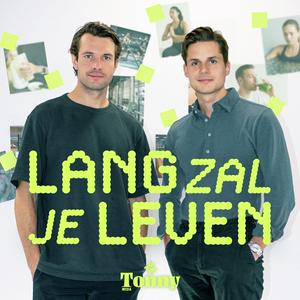
Ontvang de gratis radio.net app
- Zenders en podcasts om te bookmarken
- Streamen via Wi-Fi of Bluetooth
- Ondersteunt Carplay & Android Auto
- Veel andere app-functies
Ontvang de gratis radio.net app
- Zenders en podcasts om te bookmarken
- Streamen via Wi-Fi of Bluetooth
- Ondersteunt Carplay & Android Auto
- Veel andere app-functies


Lang zal je leven
Scan de code,
download de app,
luisteren.
download de app,
luisteren.


